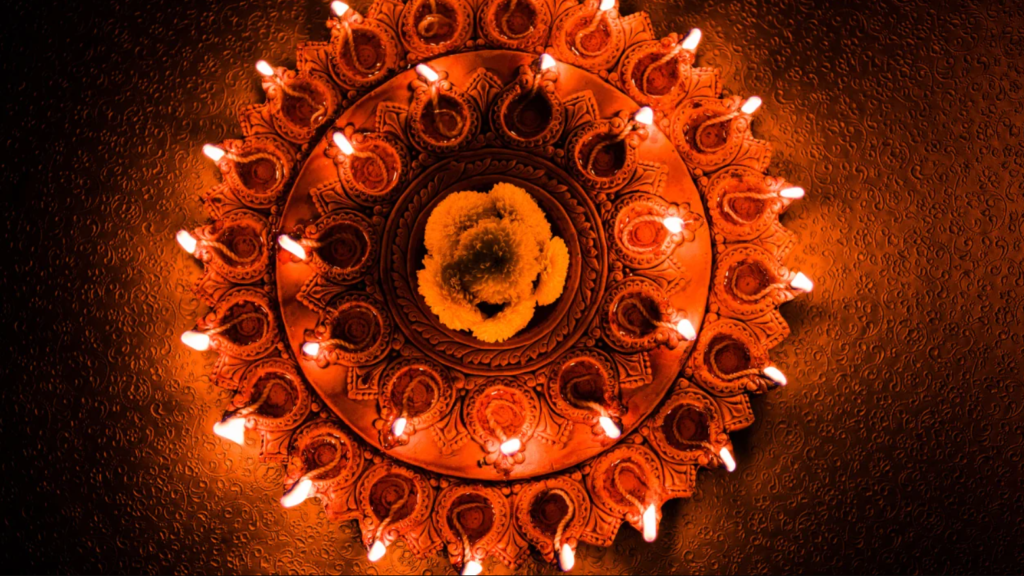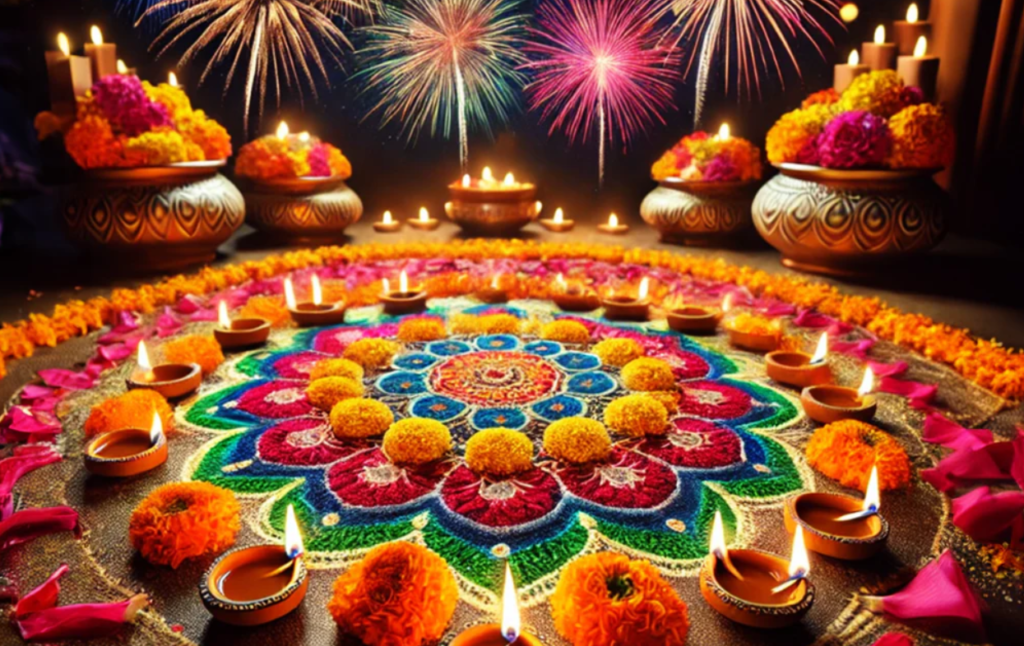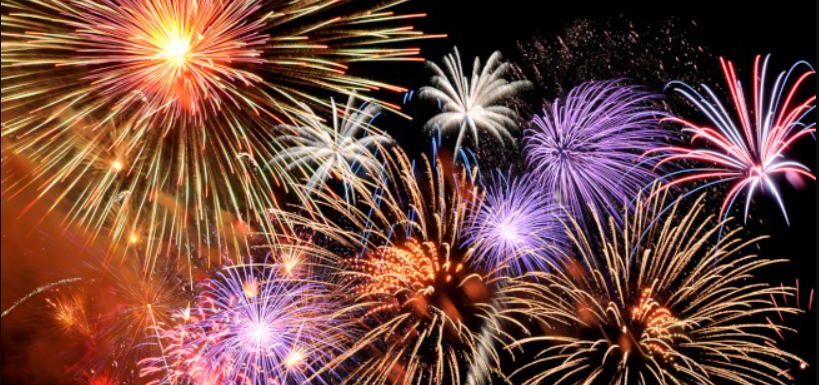Diwali: The Festival of Lights
Diwali, also known as Deepavali, is one of the most prominent and widely celebrated festivals in India and among Hindus worldwide. It symbolizes the victory of light over darkness, knowledge over ignorance, and good over evil. The word Deepavali comes from the Sanskrit words “Deepa” (light) and “Avali” (a row), meaning “a row of lights.” This five-day festival usually falls in October or November, depending on the Hindu lunar calendar.
Diwali date in 2024
Tue, 29 Oct, 2024 – Sun, 3 Nov, 2024

Historical and Mythological Significance
Diwali has rich historical, religious, and cultural meanings. Its significance and associated legends vary across regions and religions, though the underlying themes of light, prosperity, and happiness remain constant.
- Hinduism:
- Return of Lord Rama: The most popular legend associated with Diwali is from the epic Ramayana, which narrates the return of Lord Rama to Ayodhya after 14 years of exile and after defeating the demon king Ravana. The people of Ayodhya lit oil lamps (diyas) to celebrate his homecoming, marking the triumph of good over evil.
- Victory of Lord Krishna: In some parts of India, Diwali is associated with Lord Krishna’s victory over the demon Narakasura, symbolizing the triumph of righteousness.
- Goddess Lakshmi: Diwali also celebrates Lakshmi, the goddess of wealth and prosperity. It is believed that on this day, she emerged from the ocean of milk during the churning of the cosmic ocean (Samudra Manthan) and blesses her devotees with wealth and good fortune.
- Sikhism:
- Bandi Chhor Divas: Sikhs celebrate Bandi Chhor Divas on Diwali, marking the day when the sixth Sikh Guru, Guru Hargobind, was released from imprisonment by Mughal Emperor Jahangir. The Golden Temple in Amritsar is beautifully illuminated during this occasion, and Sikhs worldwide celebrate it with great fervor.

- Jainism:
- Mahavira’s Nirvana: For Jains, Diwali marks the day when Lord Mahavira, the 24th Tirthankara, attained nirvana (enlightenment) in 527 BCE. The celebration honors the liberation of the soul from the cycle of birth and death.
- Buddhism:
- Some Buddhists, especially Newar Buddhists in Nepal, celebrate Diwali to commemorate Emperor Ashoka’s conversion to Buddhism after his violent conquest of Kalinga. The festival is seen as a day of self-reflection and spiritual awakening.
Five Days of Diwali
The Diwali festival spans five days, each with its own significance and customs:
- Day 1 – Dhanteras:
- This day is dedicated to Dhanvantari, the god of health and Ayurveda, and Goddess Lakshmi. People buy gold, silver, or new utensils, as it is believed to bring prosperity and good fortune. It is also a day for cleaning and decorating homes, preparing them to welcome the goddess of wealth.
- Day 2 – Naraka Chaturdashi (Choti Diwali):
- Known as Choti Diwali, this day commemorates Lord Krishna’s victory over the demon Narakasura. People light small diyas and burst firecrackers to ward off evil spirits. It is also a day of cleaning and purifying oneself with a ritualistic bath.
- Day 3 – Lakshmi Puja (Main Diwali):
- This is the most important day of the festival. Devotees perform Lakshmi Puja in the evening, praying for wealth, prosperity, and good fortune. Homes and temples are illuminated with lamps, candles, and fairy lights. Fireworks, bursting of crackers, and sharing sweets with family and friends are common customs.
- Day 4 – Govardhan Puja:
- This day is celebrated differently in various parts of India. In North India, it marks the day when Lord Krishna lifted the Govardhan Hill to protect villagers from a storm sent by Indra, the god of rain. People prepare a variety of vegetarian dishes and offer them to the gods.
- In some regions, this day is also known as Annakut.
- Day 5 – Bhai Dooj:
- The final day of Diwali is dedicated to the bond between brothers and sisters. On Bhai Dooj, sisters pray for the well-being and long life of their brothers, applying a ceremonial tilak (vermilion mark) on their foreheads and exchanging gifts.
Traditions and Customs
Diwali is marked by various rituals and customs, many of which reflect the themes of joy, prosperity, and light:

- Lighting of Diyas and Lamps: Homes, temples, and public spaces are adorned with oil lamps and candles, symbolizing the victory of light over darkness. In recent times, electric lights have become popular, but the traditional clay diyas remain an integral part of the festival.
- Rangoli: People decorate their homes with beautiful rangoli patterns made of colored powders, rice, and flowers, often placed at the entrance to welcome guests and deities.
- Fireworks: The night sky is filled with vibrant fireworks, symbolizing the joy of the people living in Ayodhya upon Lord Rama’s return. Though concerns about pollution have led to increased calls for eco-friendly celebrations, fireworks remain a central aspect of Diwali festivities.
- Exchanging Gifts and Sweets: Diwali is also a time for sharing joy with loved ones. People exchange gifts, sweets, and snacks like laddoos, barfis, and kachoris. Homes are filled with traditional snacks like chakli, mathri, and namakpare.
- Worship and Puja: Special prayers are offered to Lakshmi, Ganesha, and other deities. People believe that Lakshmi visits well-lit homes and blesses them with wealth and prosperity.
Regional Variations
While Diwali is celebrated across India, different regions have unique traditions:
- North India: Diwali focuses on the return of Lord Rama, and the lighting of lamps and bursting of crackers is the primary form of celebration.
- South India: Diwali is celebrated as the defeat of Narakasura by Lord Krishna, and people perform early morning oil baths, decorate homes, and burst crackers.
- West India: In Maharashtra and Gujarat, Diwali is also seen as the beginning of the new financial year, and merchants open new account books, invoking blessings for a prosperous year.
- East India: In West Bengal, Diwali coincides with Kali Puja, and devotees worship Goddess Kali, the fierce goddess of power and destruction, with elaborate rituals and offerings.
Significance and Global Reach
- Spiritual Significance: Diwali transcends religious boundaries, symbolizing the inner light that protects against spiritual darkness. It promotes values like compassion, unity, and self-reflection.
- Economic Significance: Diwali is a major shopping festival in India, boosting retail sales across sectors like gold, clothes, electronics, and automobiles.
- Environmental Concerns: Due to the environmental impact of firecrackers, particularly on air quality, many cities and regions have started promoting eco-friendly Diwali celebrations. This includes using fewer firecrackers, adopting green alternatives, and focusing on more sustainable ways to celebrate.
Diwali Worldwide
The Indian diaspora has spread Diwali celebrations globally, especially in countries like Nepal, Sri Lanka, Singapore, Malaysia, Fiji, Mauritius, South Africa, the United Kingdom, and the United States. Public displays, cultural events, and Diwali-themed festivals are increasingly popular in these regions, promoting Indian culture and fostering unity.
Conclusion
Diwali is a celebration of life, light, and renewal. With its deep cultural roots and diverse rituals, it remains a festival of immense significance, spreading joy, hope, and togetherness across communities and generations.
for more blogs: comingglobe.com









